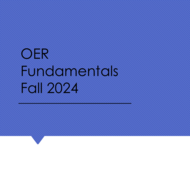Clinical Hematology Atlas: A Pictorial Guide for the Hematology Laboratory (Taylor and Doty)
(View Complete Item Description)In Medical Laboratory Science (MLS) Hematology courses, students learn to evaluate normal and abnormal blood cell morphology through microscopic examination of blood smears. They learn to interpret results and correlate with other laboratory data to identify hematologic disorders. Access to quality atlases are a vital tool in the students’ learning process. Because the cost of printing pictures is so great, the price of printed atlases is high. The number of images included is limited. And many excellent atlases are now out of print. This project seeks to eliminate those challenges for students by giving access to an Open Educational Resource (OER) atlas for hematology. This format is easily accessed during students’ time on campus and will continue into their careers as medical laboratory scientists. There are currently not many medical subject resources available as open resources. It is our hope that other healthcare professionals will find these resources beneficial. This project is unique in that students are the main contributors of the images used. While not entirely comprehensive at this point, the OER platform will allow for continual updating as new images and information become available.
Material Type: Textbook




















